
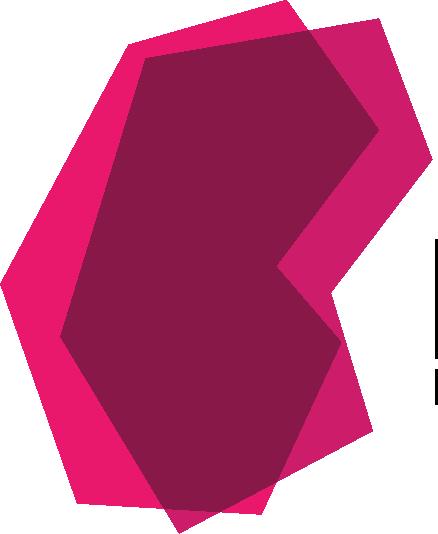
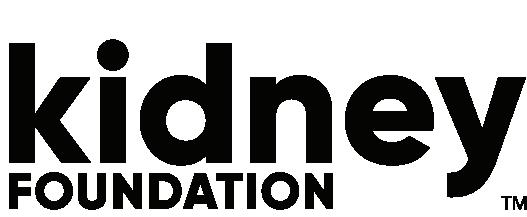
KIDNEYLiving Summer 2023 • Volume 16 • Number 1 • kidney.ca A PUBLICATION OF THE ONTARIO BRANCH Family Resilience
Kidney Disease
in the Face of


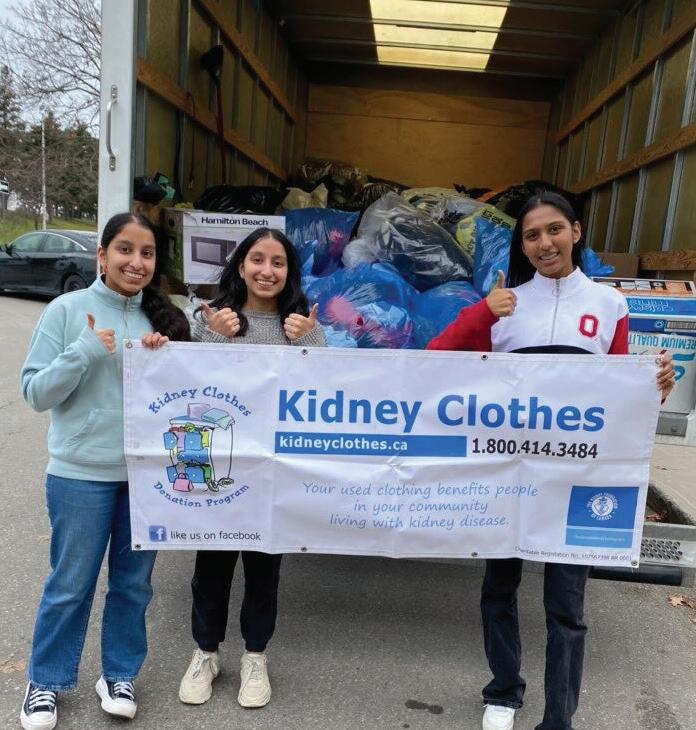
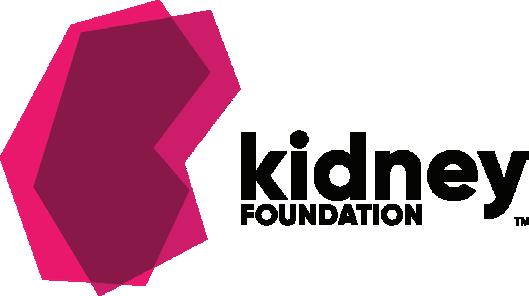
FOUNDATION FUNDRAISING 3 Editors Message 9 New PSA Campaign 12 Kidney Walk 16 Kidney Clothes & Fundraising 17 Legacy Giving What’s Inside - Summer 2023 Canadian Publications Mail Agreement #40011479 Return Undeliverable Canadian Addresses to Trish Reynolds, Director, Marketing & Communications, Circulation Department, 1599 Hurontario St., Suite 201, Mississauga, ON L5G 4S1 email: ontario@kidney.ca Phone: 1-800-387-4474 Editing, design and printing by Mystique Brand Communication mystique.ca ©2023 Kidney Living, the contents of which is subject to copyright, is published twice a year. Reproduction in whole or in part, in written, electronic or any other format, without prior written permission, is strictly prohibited. For more information, contact Trish Reynolds, Editor at trish.reynolds@kidney.ca or 1-800-387-4474 Ext. 4981. The appearance of advertising in Kidney Living does not imply an endorsement by The Kidney Foundation of Canada, nor guarantee the quality, effectiveness of any products or services. kidney.ca 6 4 16 SERVICES AND SUPPORT/RESEARCH 14 Building a Community of Support 15 William Clark Research Chair PERSONAL STORIES 6 Shilpa 10 Jason 7 Brennan & Tina LIFESTYLE 4 Planning for Family 8 Mindfulness Meditation 101 9 Mindfulness and Inner Well-Being FOOD AND NUTRITION 18 Mental Health and Food 19 Zippy Strawberry Salad Recipe 2 / Kidney Living / Summer 2023 kidney.ca / Kidney Living / Summer 2023 kidney.ca
Ontario Branch
1599 Hurontario St., Ste. 201
Mississauga, ON L5G 4S1
1-800-387-4474 • 905-278-3003
ontario@kidney.ca
Brant County
1-800-387-4474
brant.president@kidney.ca
Central Ontario
1-800-387-4474 • 905-278-3003
daniela.piotrowski@kidney.ca
Chinese Renal Association
1-800-387-4474
shukyu.fong@kidney.ca
Durham Region
1-800-387-4474
Eastern Ontario
1-800-387-4474 •613-724-9953 jennifer.heale@kidney.ca
Hamilton & District
1-800-387-4474
deanna.kulczycky@kidney.ca
Kingston
1-800-387-4474 • 613-542-2121 sarah.jensen@kidney.ca
London & District
1-800-387-4474 • 519-950-5362 carl.cadogan@kidney.ca
Niagara & District
1-800-387-4474
deanna.kulczycky@kidney.ca
North Bay
1-800-387-4474
Northern Superior 807-624-2680
ontario@kidney.ca
Sarnia-Lambton
519-344-3462
kate.hardy@kidney.ca
Sault Ste. Marie 705-949-0400
tannis.mcmillan@kidney.ca
Timmins-Porcupine
1-800-387-4474 • 705-365-7492
timmins.president@kidney.ca
Waterloo – Wellington & District 226-338-6961
leigh-anne.quinn@kidney.ca
Windsor & District 519-977-9211
shannon.vanwatteghem@kidney.ca
Stronger Together
Editors Message
The Kidney Foundation is with you for life, beside you on your journey with kidney disease. This spring we launched our new public service announcement. Many volunteers stepped up to join us on set so that our message can make an even bigger difference for others, Jason was one of those volunteers, check out his inspiring story on page 10.
Remember you are not alone, there are programs and services that can help; there is a community who will surround you with understanding and compassion. Check out kidney.ca/withyou to see the PSA and more stories from our community.
One of the programs we’re most proud of is Peer Support. Group meetings continue to be an important way to build community, connect with others and to feel supported. From transplant to living with reduced kidney function, caregivers, parents of paediatric patients, young adults and those on dialysis, there is a group to meet your need. Check out the schedule at kidney.ca/supportmeetings.
Webinars and forums are also highly effective ways to share the expertise of renal professionals and those with lived experience. Our national forum in March was filled with information to help live your best life with kidney disease. In this issue, we’ve compiled stories and information highlighting the impact of kidney disease on the entire family. Patient partner, Shilpa, shares her story of family planning, while Brennan and his mother Tina share how they are planning for Brennan’s transition from care at the paediatric hospital to adult kidney care.
Your mental health is just as important as your physical health. Meera Chawda provides an easy step by step guide to a mindfulness body scan (page 8) and Tarmara Farhat shares how what we eat can impact how we feel (page 18).
Beginning this spring, we’ve returned to host some of our most recognized events, including the annual Gala in Toronto, Celebrity Men in Windsor, and a Murder Mystery event in Hamilton. As we look forward to the fall, we’re excited to see the return of the Kidney Walks to local communities throughout September and October (page 13). The walks are the Foundation’s largest community fundraiser, but at the core, the walks are also a place where families connect, where people can see first-hand that they aren’t alone in their experience. We hope you’ll consider joining us!
Trish Reynolds Editor
EDITORIAL
Summer 2023 / Kidney Living / 3 kidney.ca
Planning for Family
By Erika Muscat
Pregnancy and Chronic Kidney Disease
The Kidney Foundation held a Virtual Forum in March 2023, with a session dedicated to the theme of families and the journey of living with chronic kidney disease. One of the breakout sessions covered the topic of Family Planning while living with chronic kidney disease featuring the stories of women and their personal reflections and the lessons they’ve learned. We asked nephrologists Dr. Veronica Silva and Dr. Marie-Josée Clermont to answer a few questions to share their insights on some of the most frequently asked questions and why it’s so important to have an open dialogue with your renal team when family planning.
Questions answered by Dr. Veronica Silva
What are the potential fertility and contraception concerns for both men and women with chronic kidney disease?
For women who have reached the later stages of kidney disease, stages 4 & 5 and/or dialysis, ovulation stops unfortunately. This is where fertility becomes difficult and a concern for those wanting to conceive. Your body is already slowing down due to your own kidneys and their functions decreasing, your ovulation will automatically decrease as well.
However, studies have shown that women who are on nocturnal dialysis or home hemodialysis tend to have a better chance at ovulating because dialysis is incorporated
on a regular basis. Obviously, there are still risks, such as high blood pressure that would need to be monitored by your nephrologist and high-risk team.
For women who are transplanted, your body and kidney function are considered to have returned to normal. Ovulation should be back on track for most women. Also depending on the age of the person, an option might be to investigate fertility clinics and information regarding freezing their eggs for future planning.
Having the conversation about pregnancy at a younger age will help guide one into making the right informed decision for their future. For men, it’s not so much of a concern. Their bodies can still produce sperm and they have better chances of having children, regardless of them being on dialysis and or diagnosed at a later stage

4 / Kidney Living / Summer 2023 kidney.ca
of CKD. On the other hand, erectile dysfunction can be a concern for them throughout CKD, regardless of their stage of kidney disease.
Are there risks associated with being pregnant with chronic kidney disease and what can be done to mitigate these risks?
There are lots of implications and ramifications with being diagnosed with CKD and other related health conditions such as lupus or diabetes, for example, and how well it is controlled and monitored throughout the pregnancy journey. Each person’s body is affected very differently.
Before considering pregnancy, please speak with your doctor. Your physician is aware of the best ways to support your medical condition(s) and when to refer you to a high-risk pregnancy clinic to optimize the best possible outcomes for you and baby.
Questions answered by Dr. Marie-Josée Clermont
In your medical opinion, why is pre-pregnancy counselling essential? What are some other resources that people can use?
Pre-pregnancy counselling is essential for many reasons. First, genetic counselling is recommended for families with a history of known or suspected inheritable renal disease to assist in decision-making regarding pursuing a pregnancy. Referral for specialist counselling with clinical genetics teams may be recommended to facilitate genetic diagnoses, the testing of family members or for discussions regarding the possibility of a pre-implantation - a procedure that is used to reduce the risk of passing inherited conditions.
A person with CKD contemplating pregnancy also needs to be in the best shape they can be such as an optimal weight, well controlled blood pressure and glycemic levels, iron and thyroid levels, no urine infection, etc. If your renal disease is active, you may have to wait a few months after remission before a pregnancy. If you had surgery to your bladder and urinary tract in the past, this may need to be reviewed by a urologist. Your renal team can assist you with all of that. They know you and your level of CKD, and they can help you make a decision that is based on your own personal health. There are many things to consider apart from your kidney disease like diabetes for example or any other conditions you may have. You and your doctor should discuss them all very thoroughly.
Your renal team also needs to be prepared, and they will direct you to the best obstetrical care you can get in your area. You may also have to change your current medication because some classes of medicines are toxic for the unborn baby, and a few weeks may be needed to make sure the new medication is effective and well tolerated.
Clinical practice guidelines include a recommendation for a pre-pregnancy consultation with a high-risk pregnancy team. If you get pregnant, they will take care of you and your pregnancy, in collaboration with the nephrology team. Your first visit must be early because some medicine may be given to lower the risk of complication, such as preeclampsia.
Pregnancy in a woman with more advanced CKD can be more complicated with risks such as, urinary tract infections, hypertension, pre-eclampsia, premature labor, restricted growth of the baby, and decrease in the mother’s own renal function. The possibility of having a caesarean section is also higher. The mother may have to take time off and/or be hospitalised for periods of time to ensure that she stays healthy and that the baby develops as expected.
The woman and her partner must be prepared for all these potential complications and for the risk of having a premature baby. It is also recommended if the CKD is advanced, that you receive pre-dialysis education.

Why is having an open and honest communication with your renal team about your expectations important?
You need an honest conversation with your doctor and with the renal team beforehand to prepare yourself and your partner to all eventualities and realign your expectations with the facts.
LIFESTYLE
Summer 2023 / Kidney Living / 5 kidney.ca
Shilpa’s Story
By Heidi Westfield
Planning to be a parent, after a double-lung transplant and dialysis
also led to many complications and months in hospital recovering. Fortunately, after that her health took a turn for the better. She spent time working, travelling, and met her future husband.
They initially considered family planning through traditional pregnancy and approached doctors at her lung transplant clinic for advice. Shilpa was referred to a high-risk pregnancy clinic, where she underwent medical testing and a physician assessment. The doctor outlined all the risks, including the possibility that a pregnancy could impact her transplanted lungs.
In talking with her fiancé, he asked her: “If there are other options, why would we put you at risk?” At that point, they decided that the safest choice to eventually have a child was to take the IVF route.
After many delays, Shilpa has decided it is time to step up their search. She and her husband have renewed their efforts to start a family.
“I feel like these hurdles just keep popping up,” she says. “We can’t wait anymore. We’ll move forward and hope that everything falls into place.”
The couple is looking to have a child through in-vitro fertilization (IVF) and a gestational carrier. They had a successful IVF treatment several years ago. Now they are looking for someone to carry their embryo through pregnancy and delivery.

“There are so many ways to have a family. We are pursuing this right now because it is an option for us,” says Shilpa. “If for some reason it stops being an option, we’ll look at other alternatives.”
Shilpa was in university when she was diagnosed with lymphoma. She survived with cancer treatments, but the chemotherapy and radiation damaged her lungs. A lung transplant five years later saved her life again, but that
The IVF process was completed in May 2018 – just two weeks after their wedding. They planned to look for a carrier in early 2020, but then the Covid-19 pandemic began. That was followed by another health setback: kidney failure caused by immunosuppression medication for her lung transplant.
Shilpa is now on home hemodialysis and her health is stable; they have started searching for a carrier and are looking ahead once more with optimism. Recently, Shilpa took part in The Kidney Foundation’s virtual forum on family planning and found it very helpful. “The forum was very encouraging,” she says. “It was nice to have exposure to people you can relate to, who are going through similar experiences.”

PERSONAL STORY
6 / Kidney Living / Summer 2023 kidney.ca
Making the Transition from Youth Care to an Adult Program
By Erika Muscat
APreparing for a Smooth Transition into Adult Care
s a caregiver of a child with a chronic illness, you likely are faced with many challenges and questions at the best of times. As the child transitions from a teenager to a young adult, more obstacles and uncertainties may arise, as they shift out of paediatric care, to an adult renal care program.
Oftentimes this process involves switching to an entirely different hospital, in addition to having a new team care for you and becoming more responsible for your own care.
Tina and Brennan are currently preparing themselves for this transition which will happen in about a year and a half. At 16, Brennan has had his kidney transplant for two and a half years and was on dialysis for six months prior to his transplant.

Some of Brennan’s concerns include losing the nurses he’s known for his whole health journey and that the new team won’t be as caring or inviting. He worries about not understanding or remembering what his doctor tells him or knowing the right questions to ask. For his mother, Tina, she is nervous about being excluded from her child’s care, and worries that he won’t be as closely monitored, and that the adult health care team will not tend to Brennan’s emotional needs. Additional challenges they will face include getting to know a new building and the new team not knowing Brennan’s health history.
With Brennan’s current care team, Tina knows exactly how she can contact them for questions in between appointments which is very important so they can get the answers they need in a timely manner. This level of comfort will not be immediately present with the new team.
The family is doing what they can now to prepare for the transition. The night before Brennan’s appointments, they chat as a family about what questions to ask
and write them down. At the appointment, they let Brennan try to answer the doctor’s questions himself and encourage him to advocate for himself. They are working with Brennan to get to know all his medications and doses and prepare his own pill boxes.
The hospital is helping them prepare as well. Brennan’s nephrology nurse will be accompanying him to his first appointment. They’ve gotten a referral to an adolescent medicine team and Brennan has started to meet with them on his own, with his parents joining later. They have also learned that Brennan’s current team will follow him until age 25, so there is ample overlap in the process.
Tina and Brennan’s concerns about the transition into adult care have allowed them to have an open communication with the health care team and learn more about the process. As a result, they have learned that there are measures in place to ensure a smooth transition. Both the paediatric and adult teams will work together and work with them, asking them how they would like to participate in Brennan’s care. While it may take some time, they will get there.
PERSONAL STORY
Summer 2023 / Kidney Living / 7 kidney.ca
Mindfulness Meditation 101
By Meera Chawda
Meera Chawda is a 4th year nursing student based in Toronto who enjoys advocating for mental health, wellness and personal development. In addition to being a full-time student, Meera has her own mental health & wellness platform, The Wellevated, which aims to empower people of all ages to begin their wellness journey by addressing their thoughts and changing their mindset.
Meera has hosted mindfulness and meditation workshops at youth groups, universities, and The Kidney Foundation peer support groups to help individuals of all ages cope with stress effectively. Meera currently works in outpatient renal dialysis as a clinical extern at Credit Valley Hospital.
hand, being mindful refers to our ability to manage our life experiences and tune into the present moment.
In fancier terms, mindfulness is the awareness of sensations and feelings without any judgement or interpretation. For instance, while you may feel overwhelmed with the amount of tasks on your to-do list today, you can take a step back and recognize how you feel without letting the emotions lead you.
Mindfulness can be practiced in a variety of ways: taking a walk without distractions, noticing the taste of your food while you eat, pausing regularly throughout the day to check in with how you feel, and of course, meditation. I like to use a body scan exercise to ease into my meditation practice. With the meditation groups I lead, this is also a crowd favourite. Here's an easy step-by-step guide to a body scan:
Sit upright and in a comfortable position, close your eyes.
Imagine a bright light shining on your forehead, feel it move down as you focus in on the sensations.
As you start with your forehead, take notice of any tension you may store within the space.
Next, focus your sensation down to your eyelids. Are they heavy? Soft? Fluttered shut?
Move your awareness down to your jaw and lips. Simply take notice of the sensations that arise. Can you feel the air move between your lips? What does that feel like?
You have likely heard terms like "mindfulness" and "meditation" thrown around and you're not sure if this whole thing is right for you. If you're contemplating trying these practices, you've come to the right place.

Mind-full and mindful seemingly have a marginal difference. Besides, they are separated by one letter, L. But the contrast is great. Mind-full describes our minds on a very average day where we are constantly bombarded with thoughts and worries related to our past, present and future such as household chores, managing our health and paying the bills. On the other
Now, move your sensation down to your chest and notice the rising and falling of your chest. Next, towards your abdominal space. Notice whether you are breathing into your stomach. You don't have to change anything- simply notice.
Shift your awareness now to your legs, feet, and toes. Notice any sensations.
Congratulations! You just completed a body scan exercise. You can tailor this mindfulness exercise to wherever you are- on a bus, in a line at the grocery store or at home. Simply taking 5 minutes a day to be mindful can help increase clarity, reduce stress, and support your health.
LIFESTYLE
COMMUNITY HIGHLIGHTS
1. 2. 3. 4. 5. 6.
7. 8.
8 / Kidney Living / Summer 2023 kidney.ca
Mindfulness and Inner Well Being
By Asha Smith
Y
our mental well-being is just as important as your physical well-being. Fear and depression can creep up with any major life-changing event or illness. Many questions can arise that make you fearful of what the future may hold. It’s important to acknowledge how your body and mind feel as you go through challenging times.
Mindfulness meditation focuses on the present moment, and how aware one is with their surroundings. It is paying attention in a particular way, on purpose to the present moment and non-judgmentally. There's a lot of freedom in choosing how you might practice meditation.
You don’t have to meditate for long periods of time for it to be effective. It is more about consistency than duration. Whether it’s 5 minutes every night before bed or 5 deep breaths while on the bus, try to get some meditation in daily. Take time and reflect on your life, your day, or your morning. Just put the focus on yourself and how you feel. You will feel the difference the more you practice.
By integrating mindfulness meditations into your daily life, you will feel changes in your body and mind. Focus on your breath and the sounds around you and feel the

physical sensations around you. Be that informal mindful meditation or meditation with movement such as yoga. Visit kidney.ca/webinars to view the recorded session from our 2023 Kidney Foundation Patient Forum about Inner Well-Being and Mindfulness.
Meditation is not a cure-all. It will not cure kidney disease, but it can still be a moment of self-care for both patients and caregivers. If you currently are living with mental health challenges, consult your doctor before starting meditation. Take care of your mind just as you do your body. One cannot improve without the other.

RECIPES & INFO TO HELP YOU MANAGE YOUR RENAL DIET KIDNEYCOMMUNITYKITCHEN.CA
Day by Day, Step by Step. Jason’s Story
By Jason Lumb
“A lot of people panic when they’re told they have to go on dialysis. Dialysis is a game changer, for sure. But my wife Sonia and I chose to see dialysis as a way of healing my kidneys.
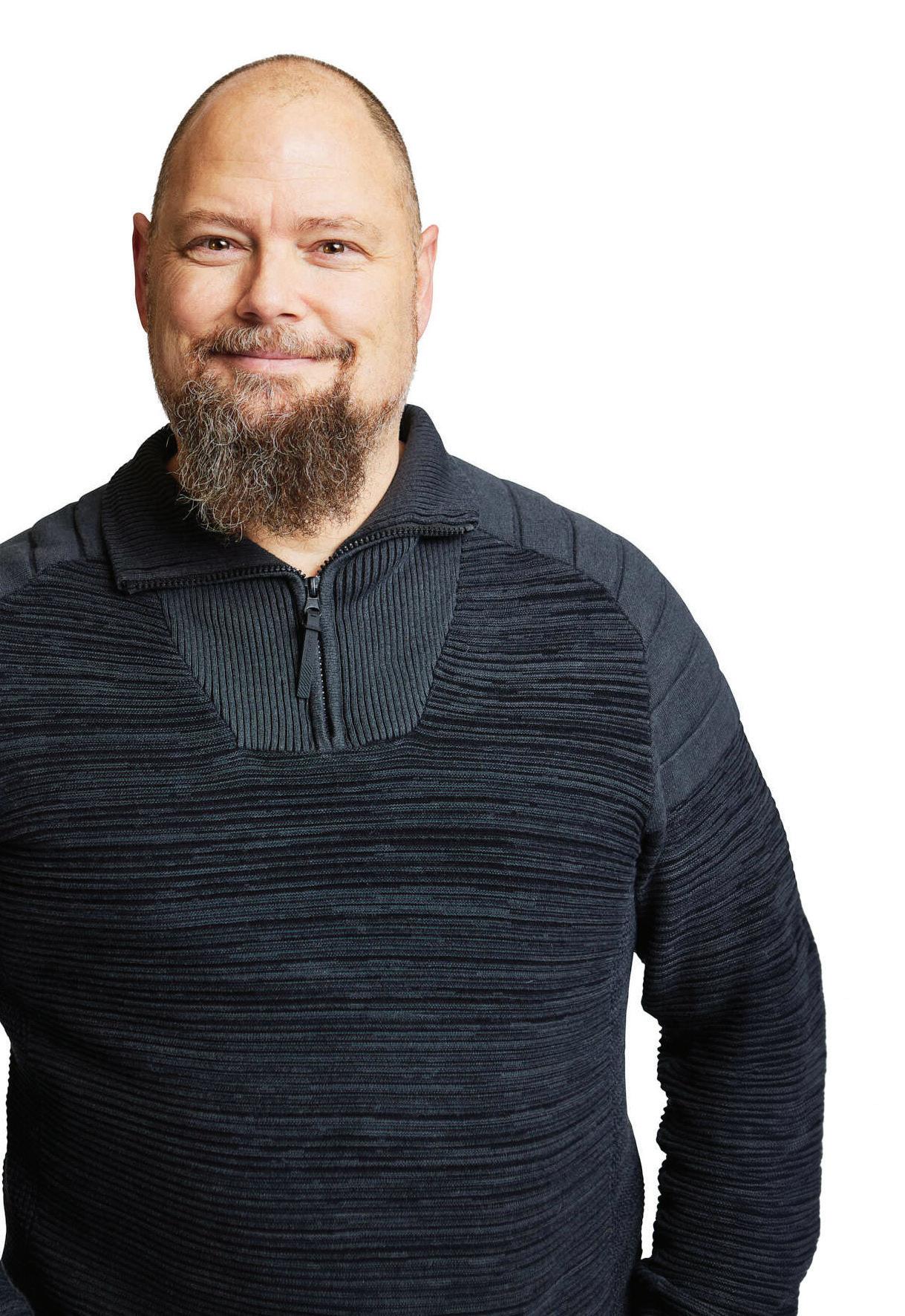
I am living my best life with kidney disease. I am in the best shape of my life mentally and physically. ”
by Jason Lumb
PERSONAL STORY
10 / Kidney Living / Summer 2023 kidney.ca
Laying in a hospital bed for three weeks does a lot to a person. Especially to a man who doesn’t believe he belongs there. I had lost a lot of weight. I was exercising regularly and eating well. I didn’t smoke or drink. I had made travel promises to my wife and kids.
Getting diagnosed with chronic kidney disease (CKD) was a rude interruption to me living my best life. At the time, I was 45 years old. Our three boys were happy teenagers. My wife and I were crazy in love and looking forward to more couple time together.
But bad news doesn’t care about your dreams, goals and aspirations. Bad news has a habit of knocking on your door and turning off all the lights, inside of you and around you. You know how they say a habit can be made or broken in 21 days?
Same goes for bad news. In less than three weeks, my diagnosis grabbed my life, shook it like a snow globe, and set fire to the future.
My kidneys were in acute failure and fading fast. A case of bad luck, why me and why now? Some men might have gotten mad. I didn’t get mad. I got sad. I might be a big guy but at heart, I’m a teddy bear. I felt small, scared and on some level – ashamed.
I will never forget the day my wife Sonia sat beside me on my hospital bed. She padded my knee. Held my hand. Hugged me tight. And told me to sit up straight and get my game face on. Yes, our lives with kidney disease would be different. No, our lives were NOT over.
A lot of people panic when they’re told they have to go on dialysis.
Dialysis is a game changer, for sure. But my wife Sonia and I chose to see dialysis as a way of healing my kidneys. As a way of getting me healthy and strong again. Day by day, step by step.
There was one small problem. I was destined to remain in hospital for two months. So we started with small steps. I got out of bed – a HUGE victory. Walked across my tiny hospital room. Another HUGE win. Day by day, step by step. This became my new mantra.
I will not lie. Every day was a struggle. And every day was a gift to keep on fighting. Yes, I’d been reduced from lifting weights at the gym to stumbling around like a toddler, learning to walk. And like a baby, I learned the importance of taking naps, of letting my body rest and recover.
Having kidney disease has challenged me. So have the 14-plus surgeries I have endured. But all of my mental and physical battles have been easier because of the love and support from Sonia and our children. Day by day, step by step.
Just as my wife promised, bad news did not dim the lights and keep our family in darkness forever. Dialysis treatment changed everything for me and my family. Finally, I was strong enough to work out again and start rebuilding my body and my health. One slow-and-stumbling gym visit eventually led to a fiveday-a-week routine. Day by day, step by step.
Sonia and I started traveling, camping and going on day trips. My dialysis equipment always accompanied us, sort of like a third-wheel chaperone. In less
than a year, my kidney health rose from three percent to 29% percent functionality. (Healthy young people with healthy kidneys have 100% kidney function.)
Today, five years later, I am “too healthy” for a kidney transplant, which some days makes me laugh, especially as I try to keep up with my new grandson. I am living my best life with kidney disease. I am in the best shape of my life mentally and physically.
Has my life with kidney disease been easy? No, definitely not, but I am grateful for the chance to keep fighting. Day by day, step by step.
I want people living with kidney disease – maybe that’s you or someone you love – to know that kidney disease is not all bad news. Life is not over. Life does not end. You can achieve your goals, live actively and with passion. A best life is still available to you and those you love.
My journey so far has taught me that kidney disease is part of my life, but kidney disease does not define my life. You know who defines my life? Me. I do. I define how I live. What I choose to do. How I choose to take care of myself so I can take care of the people I love.
How do you live your best life with kidney disease?
Day by day, step by step.
PERSONAL STORY
Summer 2023 / Kidney Living / 11 kidney.ca
The Kidney Foundation Launches New Awareness Campaign
A journey with chronic kidney disease is not the same for everyone, but the shared experience binds those affected. Kidney disease is always there, demanding attention from every part of you. It’s relentless. It interrupts. It upsets. It harms.
Kidney
Too few Canadians understand the seriousness of kidney disease and the life long journey that diagnosis brings. Its progression can be slowed or sometimes stopped, but it doesn’t go away. Dialysis steals time, the most precious of commodities. Even the best treatment option, a transplant, comes with its own challenges.
Kidney disease can try to take a lot away, but it cannot take away hope. The Kidney Foundation of Canada is with you for life, beside you on your journey with kidney disease. In creating our new public service announcement, many volunteers stepped up to join us on set so that our message can make an even bigger difference for others. You are not alone.
There is a place for you to learn more, there is a program or service that can help, there is a community who will surround you with understanding and compassion. Be part of it.
The
Kidney Foundation of Canada, Ontario Branch 2023 - 2024 Board of Directors
Dr. Norman Muirhead, President
Mary-Pat Shaw, Vice President
Chris Costanza, Treasurer
Craig Kerr, Past President
Jocelyn Brodie
Mauro Burri
Alisa Cheddi
Charles Cook
Elizabeth Giacinti
Ethan Holtzer
Alan Hui

Sarangan Lingham
Roger Ma
Marlene Rees-Newton
Teresa Roberts
Marlene Smith
Executive Director
Anthony Tirone
Ontario Branch
1599 Hurontario St. Suite 201 Mississauga, ON L5G 4S1
1-800-387-4474
Learn more at kidney.ca/withyou
disease is with you for life.
12 / Kidney Living / Summer 2023 kidney.ca
So is The Kidney Foundation of Canada.
/ Kidney Living / Summer 2023
Together We’re Stronger than Kidney Disease.
EGet behind the one you love by participating in the Kidney Walk.

very year, Canadians unite at the Kidney Walk to celebrate the strength of our kidney and transplant community. It’s been three long years since we’ve gathered in person, but we’re thrilled to share that in-person events will be held in 28 Ontario communities this fall.
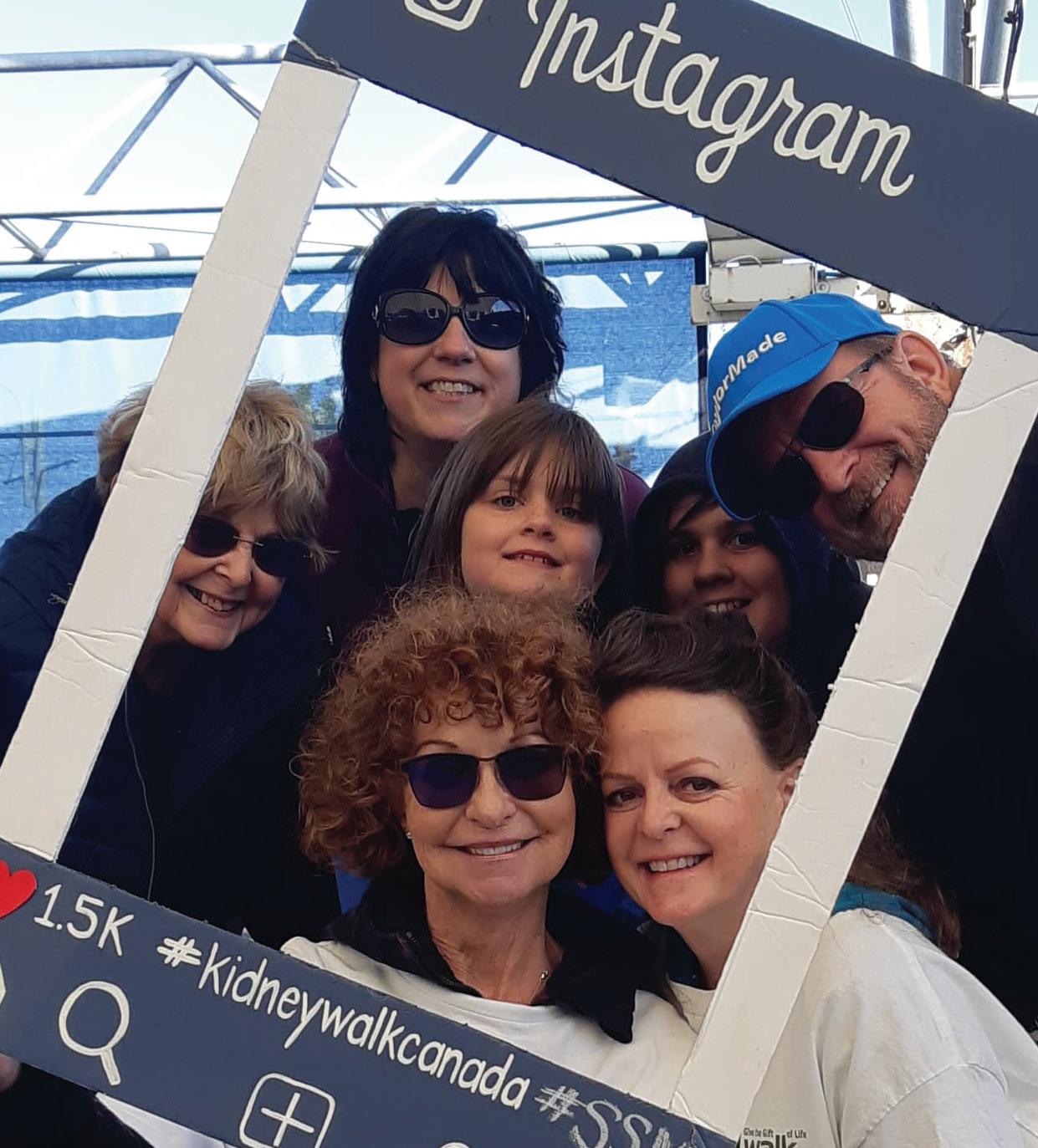
If there isn’t a physical walk in your community, you can still join the Ontario virtual walk and walk wherever and whenever you choose. No matter how you choose to participate, you're joining a passionate community with a shared belief in doing all we can to provide hope and support to our loved ones living with kidney disease.
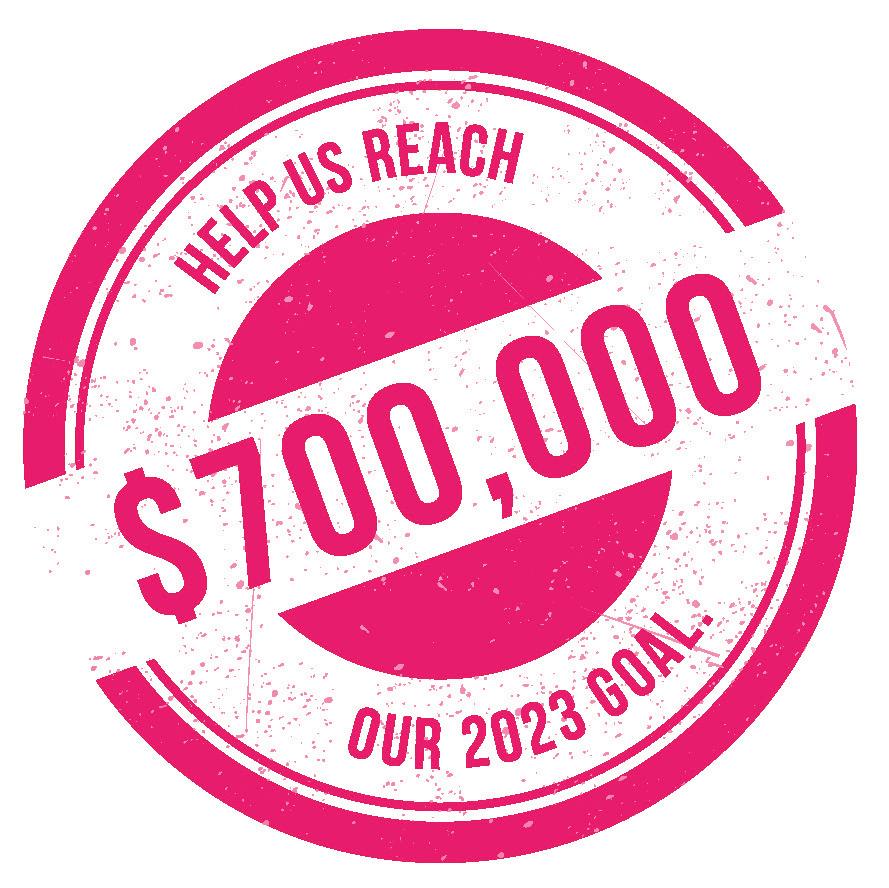
For Sault Ste. Marie’s Tracy Patrick, the Kidney Walk is a family affair. It was 24 years ago in March that she donated her kidney to her sister Kelly. Each September, Kelly travels to Sault Ste. Marie from Southern Ontario to participate in the walk with Tracy and their family. The goal is three-fold: raise awareness about kidney
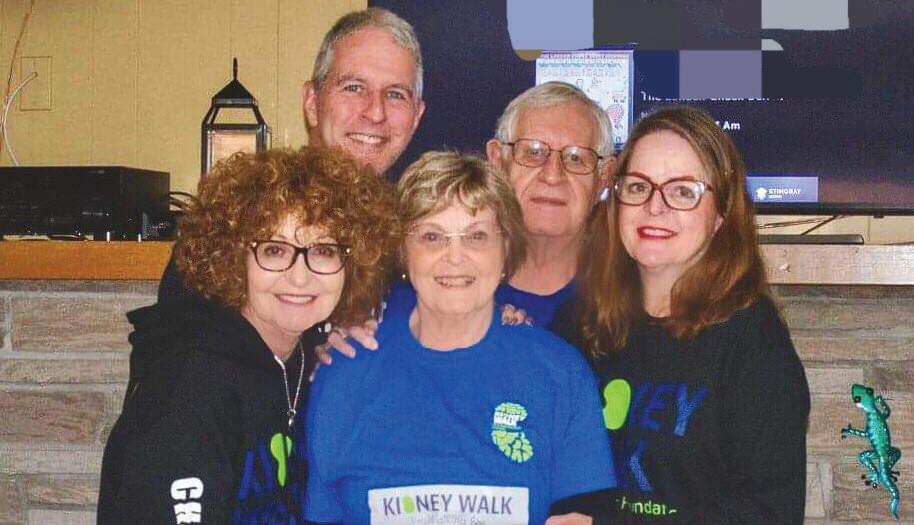
disease and the impact of organ donation; raise funds for The Kidney Foundation; and celebrate Kelly’s kidney bliss. Tracy’s name has graced the provincial leaderboard for many of years thanks to the generosity of friends and family. Tracy credits Kelly’s husband, Orest, as a key player in their fundraising success.
The walks bring our kidney community together and serve as an important reminder that we’re not alone in our journey and together we’re stronger than kidney disease.
The Kidney Walk is The Kidney Foundation’s largest community fundraiser. The funds raised from the Kidney Walk are vital to delivering the Foundation’s mission. From education to peer support; financial assistance to funding research, The Kidney Foundation is here to support all Canadians affected by kidney disease.
Summer 2023 / Kidney Living / 13 kidney.ca
Building a Community of Support
By Andrea Rennie
TCollaborative efforts result in significant gifts from London developers to build support for kidney patients’ mental health needs.
housands of patients and caregivers have been helped since The Kidney Foundation’s first Peer Support programs launched in Ontario in the mid 1980’s. Demand has signifcantly increased since 2020 and with that extensive growth, doubling in some regions. Growing this program by a further 15% over the next 3 years is a goal for Craig Lindsay, Senior Manager, Programs and Public Policy for the Foundation.
Two London Developers learned of the need to build and answered the call. Collaborative efforts between the kidney community, Kidney Foundation volunteer leadership and Foundation staff saw two separate gifts to support this important program in the Fall of 2022.
Joe Carapella, President, Tricar Developments Inc. and Allan Drewlo, President, Drewlo Holdings Inc. share their own personal kidney disease stories:
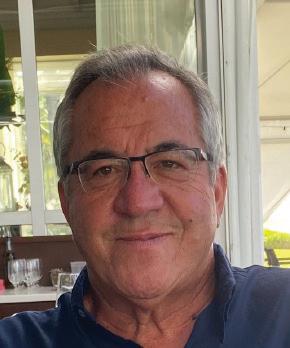
“I have known Dr. Muirhead and his team for many years. Their commitment to their specialty goes beyond the day-to-day patient care. Addressing the need for ongoing emotional support for patients and family members is an important element of care for patients with kidney disease. I support Dr. Muirhead and The Kidney Foundation in their forward thinking and long-term commitment to ensuring the vital care and compassion for kidney patients continues into the future.”
 – Joe Carapella
– Joe Carapella
“My father went on dialysis years ago, which was a lifechanging event that deeply affected me. As a family, we had to navigate the challenges and uncertainties that transpired as a result of the diagnosis. Those challenges are why I passionately embrace The Kidney Foundation’s
peer support program, as it offers help to patients in their time of need. The peer support program provides invaluable information and resources, that I believe would have been incredibly helpful for my family in our time of need.
I want to express my gratitude for the work that your organization does and for providing me the opportunity to contribute to such a meaningful cause. It is my hope that my donation will help The Kidney Foundation continue to make a positive impact on the lives of kidney disease patients and their families for years to come.”
– Allan Drewlo
With the help of philanthropists like Joe and Allan, more and more patients in Ontario won’t have to feel so alone in their journey with kidney disease. Peer support will be available for them.
As Craig shares, from a personal and professional perspective, “we all know The Kidney Foundation funds innovative research and provides much-needed financial support for those facing financial challenges. We share tremendous educational resources with so many. Still, we’ve come to learn that very often what people need most is the connection to others living with kidney disease, renal failure, or a transplant. Speaking with someone living a similar journey can get you through tough days, and it feels good to celebrate small victories with others who “get it.” Peer Support can and often does provide the greatest impact on their day-to-day life. You can live with kidney disease alone, but you don’t have to.”
SERVICE AND SUPPORT/RESEARCH
14 / Kidney Living / Summer 2023 kidney.ca
Kidney Foundation Supports William F. Clark Chair Nephrology
With a $3.5 million endowment and backed by decades-long leadership in kidney research, Western has established the William F. Clark Chair in Nephrology at the Schulich School of Medicine & Dentistry, home to one of Canada’s pre-eminent nephrology divisions.
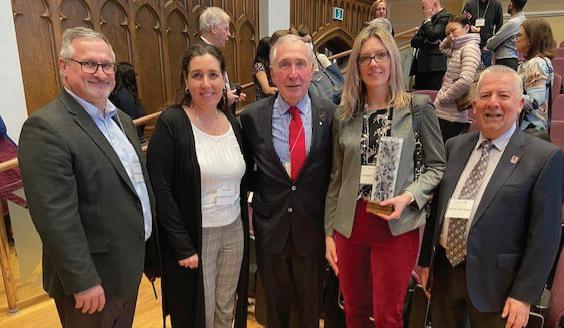

Western matched funds raised through The Kidney Foundation of Canada and the London Health Sciences Foundation (LHSF) to create the new research chair.
“The new research chair will play an important role in ensuring this community attracts and retains innovative research talent to continue the research legacy that has been built here in London,” said Dr. Norman Muirhead, president of The Kidney Foundation of Canada, Ontario Branch.
The chair is named in honour of renowned nephrologist Dr. William F. Clark, professor emeritus at Schulich Medicine & Dentistry and an Order of Canada member.
Dr. Andrew House, chair of nephrology at Schulich Medicine and his team were instrumental in ensuring this integral new chair position would honour their longtime colleague.“It is fitting that we name the research chair after Dr. Clark, whose contributions have influenced the practice of nephrology within Canada and internationally,” he said. In a career spanning 40 years, Clark has made significant contributions to a broad range of areas, including myeloma kidney disease, water contamination and screening strategies for kidney disease.
His groundbreaking research on the long-term health consequences of Canada’s worst-ever E. coli contamination in Walkerton, Ont. in 2000 has enhanced the knowledge and practice of nephrology globally.
“The Clark Chair in Nephrology will contribute to developing better practices, policies, tools and technology, all of which will translate into better treatments and patient care,” said Western President Alan Shepard.
The London kidney research community has a long history of research excellence. In 2012, Dr. Clark was awarded The Kidney Foundation’s highest research honour, the Medal for Research Excellence.
Dr. Clark has been a tremendous volunteer and friend of The Kidney Foundation at all levels of the organization. Nationally, he is a past chair of the Research Council while also playing a pivotal role in his local community for decades as a committed leader, volunteer, and donor.
This fall The Kidney Foundation will pay tribute to Dr. Clark at a special event held in his honour. Tickets for the October 14th event - Forest City Limelight – a Night to Honour Dr. William F. Clarkwill soon be available.
For more information visit kidney.ca/events or call Carl at 519-850-5362.
SERVICE AND SUPPORT/RESEARCH
Summer 2023 / Kidney Living / 15 kidney.ca
Kidney Clothes
What you can donate:
All clothing. (from the hat on your head to the socks on your feet!)
Footwear and outerwear.
Belts, ties, purses and wallets.
Blankets, pillows, bedding, linens and towels.
Yarn, fabric and patterns.
Curtains, cushions and tablecloths.
Luggage, sleeping bags and backpacks.
Host a Kidney Clothes Drive!
Looking for an easy and cost-free way to raise funds for your school, sports team or organization? Host a Kidney Clothes Drive! The team at Kidney Clothes will pick up the donations and turn them into funds to support your cause and Canadians living with kidney disease!
Hosting a clothing drive is easy and the cost is free. “It's a great fundraiser for us – not a huge amount
of volunteer time required and a great feeling of community support as the pile grows. We're happy to work with Kidney Clothes!” Julie in Barrie said of a fundraiser held by her organization.
For Kidney Clothes it’s a win-win. “Clothing drives are an effective way to collect donations which support the work of The Kidney Foundation of Canada while also supporting local causes in the communities Kidney Clothes serve.”
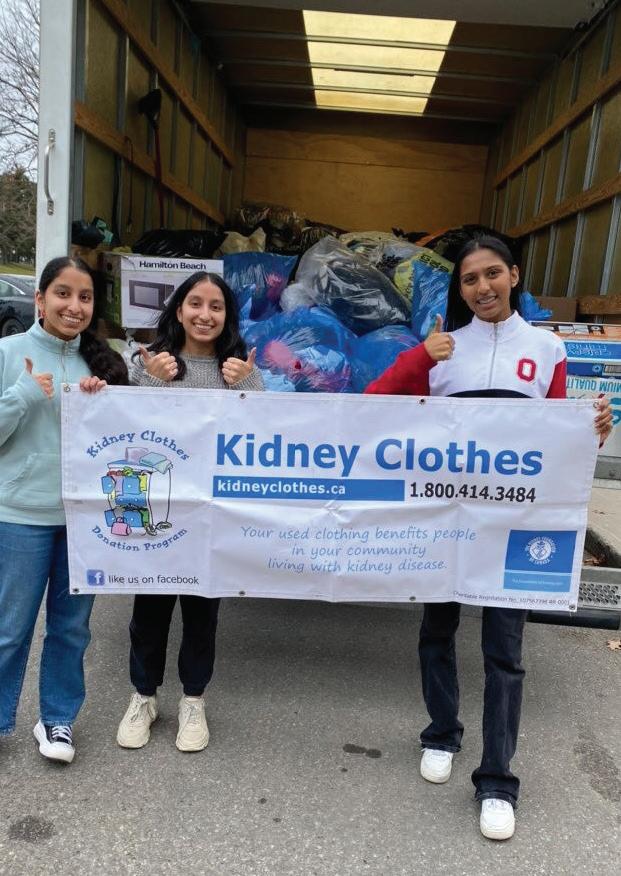
To learn more about hosting a drive contact the Kidney Clothes team at donate@kidneyclothes.ca or call 1-800-414-3484
Kidney Clothes picks up donations in over 200 communities across Ontario. Please note that some geographic restrictions apply.
PERSONAL STORY
• • • • • • •
16 / Kidney Living / Summer 2023 kidney.ca
Legacy Giving
By Andrea Rennie
R“Are you at a life stage where creating a legacy for your family and others is important and more front of mind?”
eality is that anyone, at any stage in life, can create a legacy which may include considering a planned gift to a charitable organization that holds special meaning.
Creating a charitable planned gift is not complicated nor costly. There are no loss of assets or fees associated with doing this. However, the tremendous future impact on programs and services it can have to an organization like The Kidney Foundation on Canada is priceless.
Other benefits include the tax relief it provides to the donor’s estate, helping to minimize taxes plus the fact it does not affect what one’s heirs or loved ones would receive from an estate.
There are various ways to make a planned gift so please reach out. We are a resource for you if The Kidney Foundation of Canada holds special meaning for yourself, a family member, or friend who is considering this type of legacy giving in their estate planning.
It’s not about having a conversation about death but about a vision for the future and the impact a planned gift can make to an organization like The Kidney Foundation of Canada and the 1 in 10 Canadians who are living with kidney disease.

Summer 2023 / Kidney Living / 17 kidney.ca
You might know that nutrition has an immense effect on our physical health, but did you also know that the food we eat can impact our mental wellbeing as well?
The brain, which controls our thoughts and emotions, needs fuel to function properly. This fuel comes in the form of nutrients found in our diet and the food we consume. If the brain doesn’t receive the proper nutrients, the result can be an unwanted change in our mood and sleep pattern. An inadequate diet can also make us feel lethargic and slow our decision-making abilities.
References:
Mental Health and Food
Written by Tamara Farhat, Reviewed by Emily Campbell RD CDE MScFN
How What We Eat Can Impact How We Feel
Processed Food and Mood Disorders
In a world where processed foods are more convenient and sometimes more accessible than fresh ingredients, our society has become reliant on this type of food. Processed foods may lead to inflammation in the body and the brain, which may cause mood disorders, including anxiety and depression1. Because these foods typically contain high amounts of carbohydrates in the form of refined sugars and white flour, which stimulate the dopamine part of the brain, they can become highly addictive. The more we consume them, the more the brain craves them instead of craving nutrient-rich fruits and vegetables, which are essential for our physical and mental well-being. Processed foods are also high in phosphorus additives, which as kidney patients, you should avoid.
The Positive Impact of a Healthy Diet
Studies2 have shown that the Mediterranean diet has a 25% to 35% lower depression risk than a traditional “Western” diet which includes an overload of processed foods and refined sugars. The researchers attribute this result to the high amounts of vegetables, fruits, unprocessed grains, fish and seafood in this diet and alongside low amounts of lean meats. The Mediterranean diet has also been shown to prevent kidney disease and slow its progression in kidney patients.

Our Physical Health Impacts Our Mental Health
If we are unwell physically, that can negatively affect our mental well-being. As kidney patients, a healthy kidney-friendly diet is important to prolong your kidney function and slow the progression of kidney disease. It’s important to discuss with your dietitian your specific dietary needs and create a diet that works for you.
To find a CKD dietitian in your area, you can ask your nephrologist or family physician for a referral to a CKD dietitian. Further information can abe found on The Kidney Community Kitchen. kidneycommunitykitchen.ca/dietitians-blog
1 Eating Well For Mental Health: https://www.sutterhealth.org/health/nutrition/eating-well-for-mental-health
2 Nutritional psychiatry: Your brain on food: https://www.health.harvard.edu/blog/nutritional-psychiatry-your-brain-onfood-201511168626
18 / Kidney Living / Summer 2023 kidney.ca
Zippy Strawberry Salad
By Madge Ma
Ingredients
Dressing:
1⁄2 cup vegetable oil
1⁄3 cup white wine vinegar
1 garlic clove, minced
2 tbsp. brown sugar
1 tsp. curry powder
1 tsp. soy sauce (low sodium)
Salad:
10 cups torn salad greens
1⁄2 cup slivered almonds, toasted
1 cup grapes (red/green), halved
2 cups sliced strawberries
1⁄2 cup crushed, unsalted pretzels
2 cups mandarin orange segments
Directions
Combine all dressing ingredients and shake well. Set aside.
Toss together salad greens and strawberries with dressing.

Sprinkle with almonds and pretzels. Serve immediately.
Nutrient Analysis
Calories: 256 KCal
Protein: 4 g
Carbohydrates: 24 g
Fibre: 3 g
Total Fat: 18 g
Sodium: 41 mg
Phosphorus: 85.9 mg
Potassium: 344 mg
Renal Diet Nutrient Analysis
Servings per recipe: 6
Serving size: 202 g
kidneycommunitykitchen.ca
Renal and Diabetic Exchanges
2 vegetable
What is one exchange?
1 Protein Choice = 1oz of meat or 7g of dietary protein
1 Starch Choice = about 15g of carbohydrates
1 Fruit or Vegetable Choice = ½ cup
1 Milk Choice = ½ cup
FOOD AND NUTRITION
Photo credit: Jace Cann
References:
Summer 2023 / Kidney Living / 19 kidney.ca

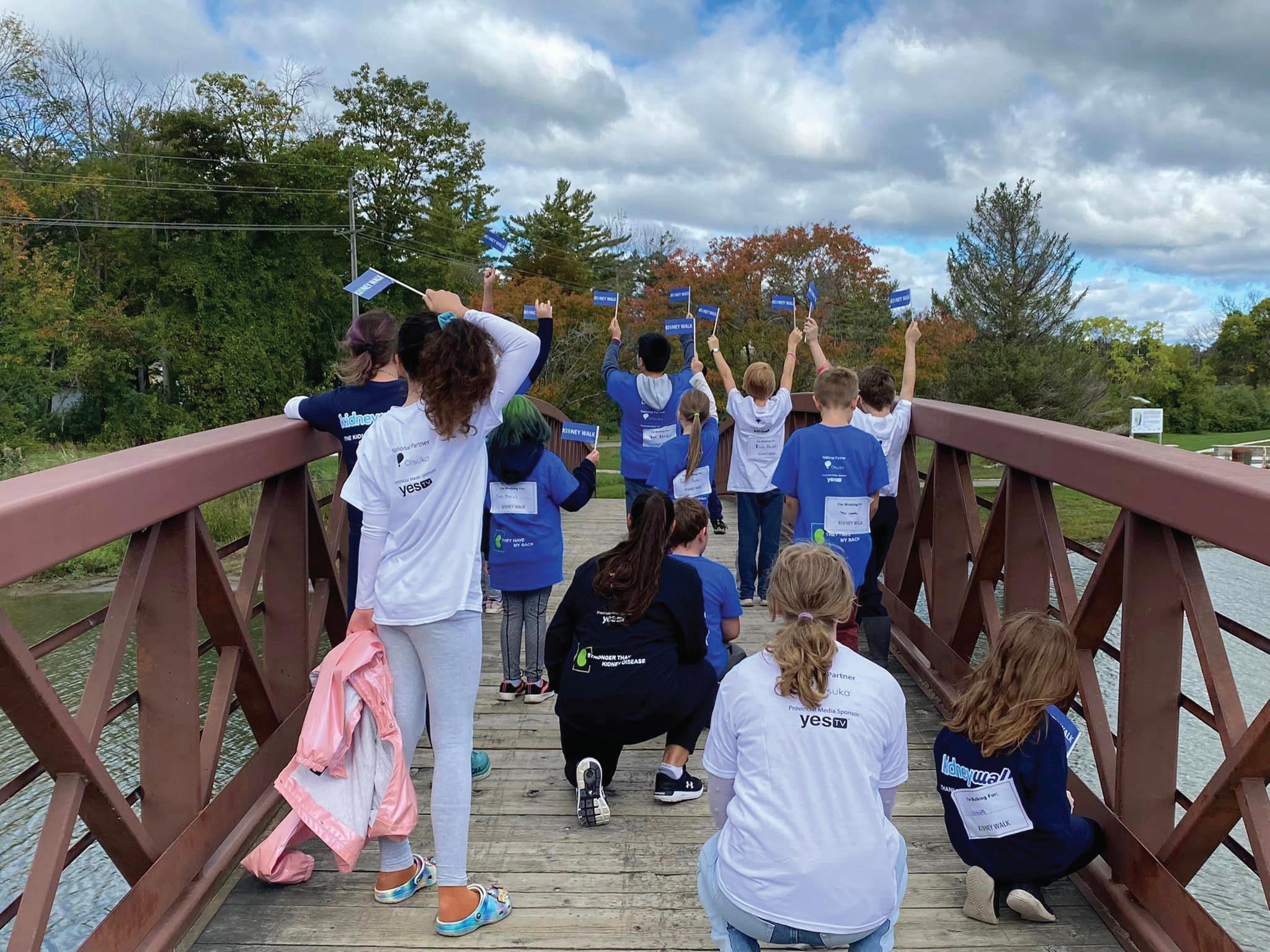




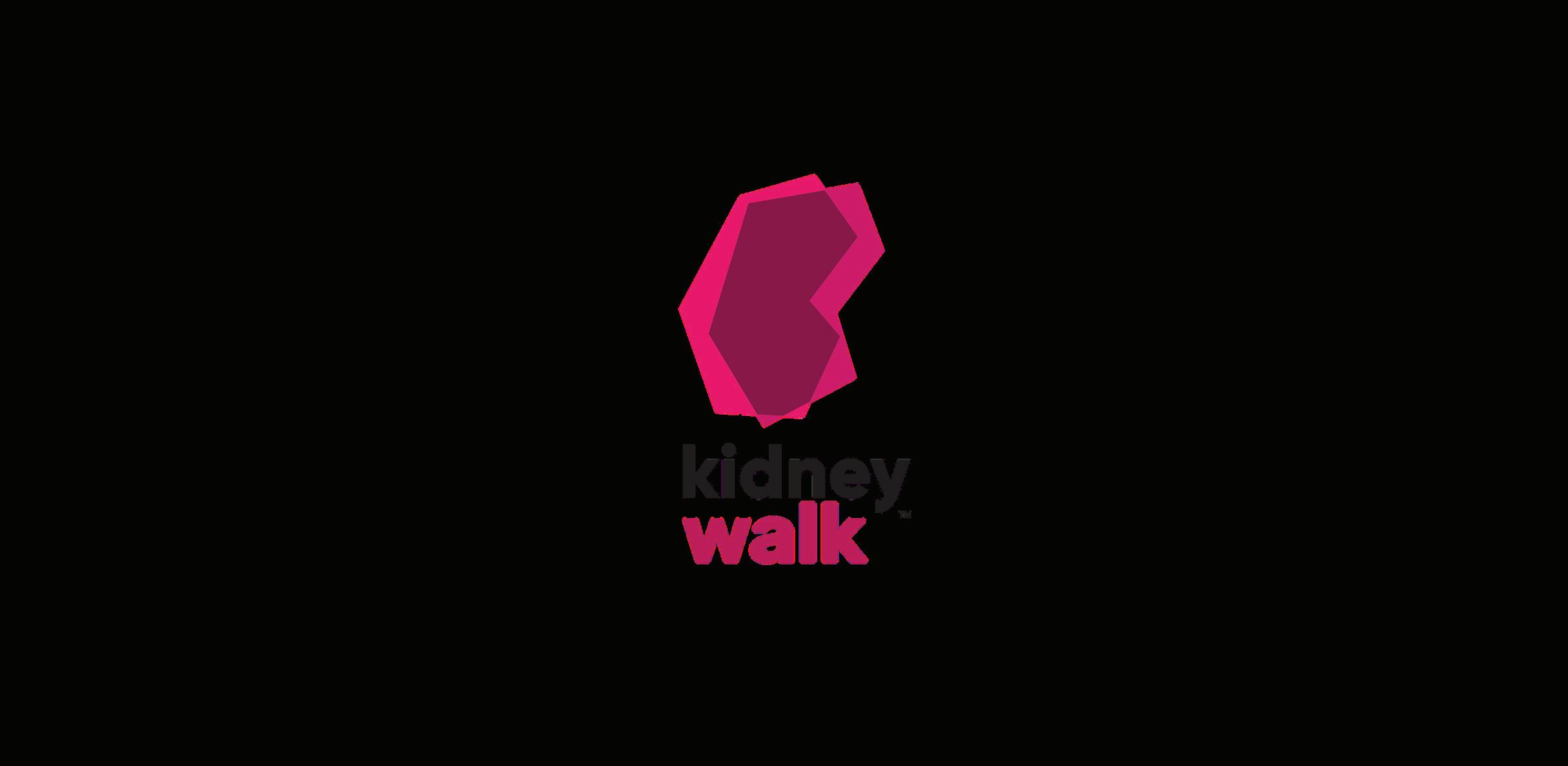

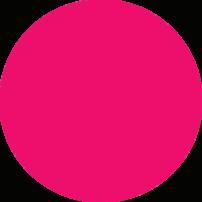


Canadian Publications Mail Agreement # 40011479 Postmaster: Please return undeliverable Canadian addresses to The Kidney Foundation of Canada, 1599 Hurontario St., Ste. 201, Mississauga, ON L5G 4S1 G e t b e h i n d t h e o n e y o u l o v e Together, we’re stronger than kidney disease! REGISTER AT KIDNEYWALK.CA























 – Joe Carapella
– Joe Carapella




























